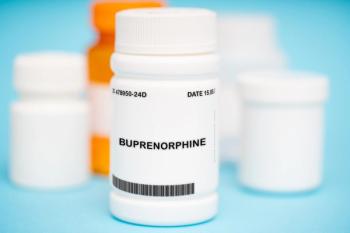
U.S. authorities see red over Canadian Rx parties
Some Canadian mail order pharmacies are now sponsoring prescription parties to help American senior citizens import medications even though the FDA has warned that anyone aiding and abetting such illegal importation is subject to civil and criminal charges.
COMMUNITY PRACTICE
U.S. authorities see red over Canadian Rx parties
Stealing a page from the old but highly successful Tupperware marketing model, some Canadian mail-order pharmacies are now throwing partiesprescription partiesfor senior citizens who want to get their medications on the cheap.
Prescription parties actually appeared on the senior scene in Arkansas before the state's lone storefront Rx broker set up shop, according to pharmacy board inspector Ron Ewing. In the middle of an active investigation of the Canadian drug importation scene, he said he has attended such get-togethers, which recruit guests by advertising in local newspapers and posting notices on activity boards at retirement centers.
"It's becoming more and more prevalent, and they're getting more aggressive," Ewing told Drug Topics. "Rx Depot is our only storefront, but we have a whole bunch of party sponsors. They're mostly middlemen who have found a way to make some money off drug distribution. "
Apparently determined to leave no Rx gold mine untapped, some Canadian mail-order pharmacies are hiring insurance agents in Arkansas. Ewing said that since agents know whether elderly clients have Rx coverage, they have an ideal opportunity to pitch cheaper imported drugs to seniors.
Having issued, along with the Food & Drug Administration, a cease-and-desist warning letter to Rx Depot in April, the Arkansas pharmacy board's attorney is preparing to file for an injunction to close down the storefront. In neighboring Oklahoma, the pharmacy board won a temporary injunction to shutter the seven Rx Depots in the state, but the judge stayed his order until Aug. 31.
"This leopard seems to be changing its spots on a daily basis," said Don Williams, executive director, Washington State Board of Pharmacy. While Rx parties aren't part of the local social scene yet, he added, "If we heard of such an operation here, we'd try to get an invitation to the party and then determine whether any of our laws had been violated."
Montana successfully shut down its only storefront to date through stubbornnessand threatening to get a subpoenato examine the operation's financial records, said pharmacy board executive director Rebecca Deschamps, R.Ph. While Rx parties have yet to invade Big Sky country, she said the board would take the approach that they're aiding and abetting illegal activity.
"I received a call from someone considering opening an information-only office in which the actual script is never touched and the patients themselves fax or mail the prescription hard copy to the Canadian pharmacy," said Deschamps. "The office provides only the forms and receives a 'monetary token of appreciation' from the Canadian pharmacy for each script sent its way. I told the caller that we'd pursue an aiding-and-abetting charge if they opened a business."
New Hampshire seniors have yet to be wooed, or if parties are happening, the organizers are flying under the radar of the pharmacy board, said executive secretary Paul Boisseau, R.Ph. He's not sure whether the board would have regulatory authority over the parties but suggested the state consumer protection office might be able to take action because the hosts are promoting an illegal activity.
Summing up the regulatory reaction to the Rx parties, Boisseau said, "What can we expect next, Rx bingo?"
Carol Ukens
Could terrorists threaten U.S. med supply?
While government agencies have been focusing on potential terrorist attacks with biological and chemical agents, America's medication supply is also vulnerable to exploitation, according to an analysis by GlobalOptions Inc., a Washington, D.C., international risk management and business intelligence firm. The 212-page report is posted free on the Web at
Pharmaceuticals are a tempting target for terrorists on at least two counts. Diverting legitimate drugs or making and selling counterfeit ones are sources of funding for terrorist organizations to purchase weapons or mount fresh attacks, according to the analysis.
Also, the drugs themselves could become weapons if they were adulterated with poison or pathogens, according to the authors. Terrorists have already attempted several attacks with ricin and cyanide, ingredients likely to be combined with drugs. Terrorists have allegedly produced a cream laced with cyanide. And in Israel, nuts and bolts packed into suicide bombs have been doused with rat poison to cause uncontrollable bleeding in victims.
Any moves to ease drug importation from Canada would create "new, lucrative opportunities for terrorists" seeking to generate funds through counterfeiting, the report warned. Up to 50 terror groups operate in Canada. If importation laws are eased, terrorists wouldn't have to smuggle drugs, they could launch an attack by sending tainted drugs through the mail.
Setting up Internet pharmacies poses the least risk for terrorists but could be the most devastating to American consumers, said GlobalOptions. Tainted drugs could be delivered from virtually anywhere in the world.
"While the threat to the medicine supply is currently low, the consequences of such an attack could be deadly," said the authors. "Step by step, terror groups are gaining expertise to produce and distribute fake drugs. Terrorism involving the medicine supply is a growing threat that requires immediate attention."
Carol Ukens. U.S. authorities see red over Canadian Rx parties. Drug Topics Jul. 7, 2003;147:31.
Newsletter
Pharmacy practice is always changing. Stay ahead of the curve with the Drug Topics newsletter and get the latest drug information, industry trends, and patient care tips.























